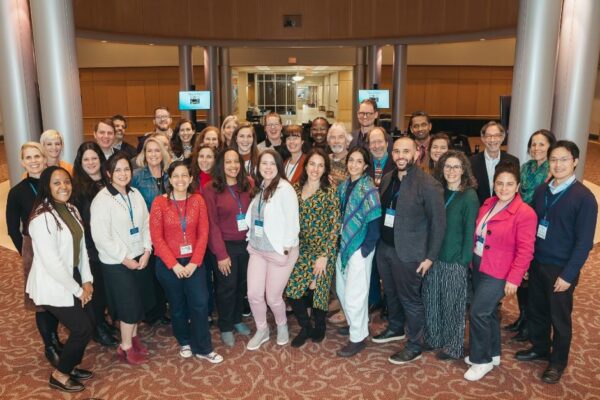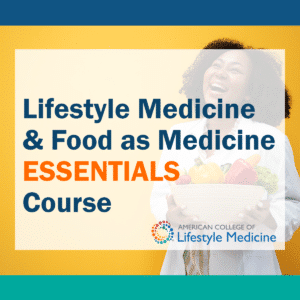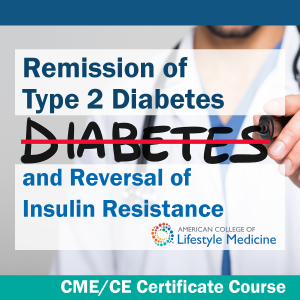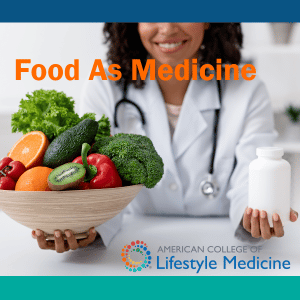How Lifestyle Medicine Can Prevent Burnout in Healthcare Professionals
Ninety percent of lifestyle medicine practitioners surveyed reported that lifestyle medicine positively impacted their professional satisfaction.

The issue of burnout among healthcare professionals is a growing concern, affecting a significant number of practitioners, and contributing to physician and other clinician shortages. However, an important new research study by ACLM published in the American Journal of Health Promotion highlights the potential of lifestyle medicine to manage and reduce burnout among healthcare professionals.
The Positive Influence of Lifestyle Medicine
Of the 482 members of the American College of Lifestyle Medicine (ACLM) surveyed for the study, 90% of respondents reported that the integration of lifestyle medicine into their medical practice had a positive impact on their professional satisfaction. They reported notable improvements in patient outcomes, increased patient satisfaction, and the development of more meaningful clinician-patient relationships as key benefits of lifestyle medicine.
The Link Between Lifestyle Medicine and Burnout Reduction
The study revealed a significant association between the incorporation of lifestyle medicine and a decreased likelihood of experiencing burnout among healthcare professionals. Those who practiced lifestyle medicine more extensively were found to have a 43% lower chance of experiencing burnout.
Factors Contributing to Professional Satisfaction
Survey respondents attributed the positive impact of lifestyle medicine on their professional satisfaction to various factors. Top responses were a sense of accomplishment and meaningfulness, increased patient satisfaction resulting from improved outcomes, and the enjoyment of teaching and coaching.
The Urgent Need to Tackle Healthcare Professional Burnout
The prevalence of burnout among healthcare professionals has reached alarming levels. An estimated 63% of practitioners experienced it in 2022, a notable increase from 44% in 2017. This escalating trend will exacerbate the shortage of healthcare professionals, which the Association of American Medical Colleges projects will range from 37,800 to 124,000 fewer clinicians by 2034.
Understanding Lifestyle Medicine
Lifestyle medicine is a specialized field that focuses on utilizing therapeutic lifestyle interventions as the primary approach to treating chronic conditions such as cardiovascular diseases, type 2 diabetes, and obesity. By incorporating evidence-based lifestyle changes like adopting a whole-food, plant-predominant eating pattern, engaging in regular physical activity, prioritizing restorative sleep, managing stress effectively, avoiding risky substances, and fostering positive social connections, lifestyle medicine practitioners aim to treat and often reverse these conditions. Additionally, lifestyle medicine offers effective preventive strategies.
Benefits of Lifestyle Medicine for Healthcare Professionals
The study shed light on the experiences of healthcare professionals who have embraced lifestyle medicine in their lives and practices. They reported that lifestyle medicine allowed them to address patients holistically, encompassing emotional aspects alongside physical complaints. Many expressed finding joy, meaning, and gratitude in their professional work, underscoring the personal fulfillment that lifestyle medicine can provide.
Self-Care and Lifestyle Changes
The incorporation of lifestyle behavior changes into their own lives emerged as a critical factor in reducing burnout among healthcare professionals. Practitioners who increased physical activity, adopted a predominantly plant-based eating pattern, or implemented effective stress management techniques reported significant improvements in their own well-being.
Supporting Healthcare Professionals
To support healthcare professionals in achieving and maintaining healthy lifestyles, ACLM offers a dedicated Physician and Healthcare Professional Well-Being course. This course equips individuals with tools to leverage their personal strengths, improve workplace culture, and foster positive patient interactions.
Future Implications and Research
While previous efforts to address burnout primarily focused on organizational changes with limited success, this study emphasizes the need for further research to compare the experiences of burnout between lifestyle medicine clinicians and non-lifestyle medicine practitioners. Furthermore, lifestyle medicine has the potential to inspire student doctors to choose primary care specialties, which is crucial given the projected shortage of primary care physicians.
Conclusion
The issue of burnout among healthcare professionals demands attention and effective solutions to safeguard their well-being and ensure high-quality patient care. The integration of lifestyle medicine emerges as a promising approach, offering healthcare practitioners a means to prevent and manage burnout, enhance their professional satisfaction, and establish deeper connections with their patients. By embracing lifestyle medicine principles, healthcare professionals can cultivate a fulfilling and sustainable career path within the healthcare industry.
Read the full study: Lifestyle Medicine Practitioners Implementing a Greater Proportion of Lifestyle Medicine Experience Less Burnout









